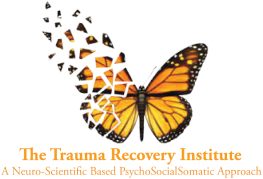Specialised Group Psychotherapy
The Trauma Recovery Institute
Dynamic Psychosocialsomatic Psychotherapy (DPP) is a highly structured, once to twice weekly-modified psychodynamic treatment based on the psychoanalytic model of object relations. This approach is also informed by the latest in neuroscience, interpersonal neurobiology and attachment theory. As with traditional psychodynamic psychotherapy relationship takes a central role within the treatment and the exploration of internal relational dyads. Our approach differs in that also central to the treatment is the focus on the transference and countertransference, an awareness of shifting bodily states in the present moment and a focus on the client’s external relationships, emotional life and lifestyle. We offer this unique multidicpline approach on a one to one basis, with couples and in group therapy.
Dynamic Psychosocialsomatic Psychotherapy (DPP) is an integrative treatment approach for working with complex trauma, borderline personality organization and dissociation. This treatment approach attempts to address the root causes of trauma-based presentations and fragmentation, seeking to help the client heal early experiences of abandonment, neglect, trauma, and attachment loss, that otherwise tend to play out repetitively and cyclically throughout the lifespan in relationship struggles, illness and addictions. Clients enter a highly structured treatment plan, which is created by client and therapist in the contract setting stage. The Treatment plan is contracted for a fixed period of time and at least one individual or group session weekly. Our advanced relational trauma recovery group meets for 48 sessions per year. this is a long term relational group. Relational group process emphasizes transaction-by-transaction interpersonal contact, the processesof intersubjective relating, and the reciprocal and mutual influence of each group member on theother members. The focus of both the group therapist and group members is on the interplay betweenthe present moment and the emergence of unconscious relational patterns that may be an expressionof archaic experiences. Group members learn to relate to each other through acknowledgment, phe-nomenological inquiry, validation, and normalization. The healing of anxiety, depression, cumula-tive neglect, and trauma becomes possible through group members’ contactful, caring relationshipsthat attend to each person’s subjective experience and relational needs (Erskine, Moursund, & Traut-mann, 1999). Relational group process is an implementation of Buber’s (1923/1958) I and Thou philosophy. It is through the development of trust, a shared relationship, validation, consistent reliability and security, and ongoing responses to each individual’s relational needs that the indigenous healing and growth-enhancing power of the group is actualized in the lives of each member. Such respectful group involvement puts an end to group members’ sense of shame, rectifies cumulative neglect, dissolves chronic stress, and heals trauma.
Talk therapy alone is not enough to address deep rooted trauma that may be stuck in the body, we need also to engage the body in the therapeutic process and engage ourselves as clients and therapists to a complex interrelational therapeutic dyad, right brain to right brain, limbic system to limbic system in order to address and explore trauma that persists in our bodies as adults and influences our adult relationships, thinking and behaviour.
The Trauma Recovery Institute A Neuro-Scientific Based PsychoSocialSomatic Approach
Dynamic Psychosocialsomatic Psychotherapy - Working on The Mind & all Bodily Systems

